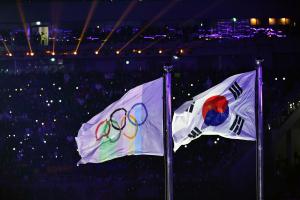SEOUL, Feb. 13 (UPI) — South Korea will strengthen efforts to eradicate global hunger and promote wellness around the world with food aid and culinary excellence, according to Minister of Agriculture Food and Rural Affairs Kim Yung-rok, in an interview with UPI.
Ahead of a Global Food Summit held on the sidelines of the Pyeongchang Olympics, Kim renewed the country’s commitment to boosting food security and nutrition, particularly in developing countries.
“South Korea was an impoverished nation in the past, after the Korean War. So it was once a country that received international food aid. Now, living standards have risen significantly and the level of self-sufficient food production is high, especially when it comes to rice,” he said.
South Korea recently joined the multilateral Food Assistance Convention, pledging 50,000 tons of rice this year, worth $40.5 million.
The FAC, made up of 16 members, including Australia, the European Union and the United States, aims to reduce hunger, enhance food security and improve the nutritional status of the most vulnerable populations.
North Korea won’t be among the recipient countries due to United Nations Security Council sanctions against its nuclear development program, although Kim says the isolated state is in critical need of food aid.
After consultations with the World Food Programme, Kim said the rice is likely to be delivered to Middle Eastern and African countries that are struggling from internal conflicts and climate change.
“As the average annual income in South Korea is set to hit $30,000 per capita, we will strive to seize the opportunity to expand our donation (through the FAC),” the minister said.
The agriculture ministry is also assisting agricultural development in developing nations around the world, as part of its Official Development Assistance (ODA).
“We are supporting developing nations with agricultural infrastructure such as irrigation systems as well as cutting-edge technology for farmers and consulting services for governments to help them formulate national strategies for agricultural development,” Kim said.
In 2010, South Korea became the first country to transition from being an aid recipient to a donor of ODA.
Its rural development initiative sparked in the 1970s is largely credited with transforming the country’s war-torn landscape into productive, self-sufficient communities, by bolstering farming co-ops, infrastructure and education.
Since then, the country has been sharing its homegrown rural development model by introducing modern farming techniques and new agricultural technologies to communities around the world.
Out of the 3.2 billion dollars allotted for ODA in South Korea’s government budget for this year, around 70 million is dedicated to agricultural development in 15 countries around the world.
Kim says his ministry plans to expand assistance by customizing aid to the needs of the beneficiary countries.
Along with foreign aid, South Korea aims to introduce its homegrown food and technologies to promote sustainable produce and diets, as part of the United Nations’ Sustainable Development Goals (SDGs).
The SDGs aim to achieve zero hunger and food security by 2030.
“Korean cuisine is internationally acclaimed as balanced, nutritious food, containing an eight to two ratio of vegetable oil to animal oil. Also, soy sauce, soy bean paste and other fermented products are some of the world’s most advanced fermented foods. As for kimchi, it is one of the world’s top five healthiest foods,” Kim said.
The minister encouraged all Pyeongchang visitors to stop by the K-Food Plaza located in the Olympic venue where they can taste 60 of Korea’s best traditional dishes, freshly prepared with ingredients sourced from the local Gangwon Province.
The dishes include chili chicken stew, buckwheat pancakes, soy sauce marinated beef, as well as a chromatic mixed rice bowl topped with stirred vegetables and meat.
The food exhibition will run throughout the Olympic and Paralympic Games which end March 18.

COMMENTS
Please let us know if you're having issues with commenting.